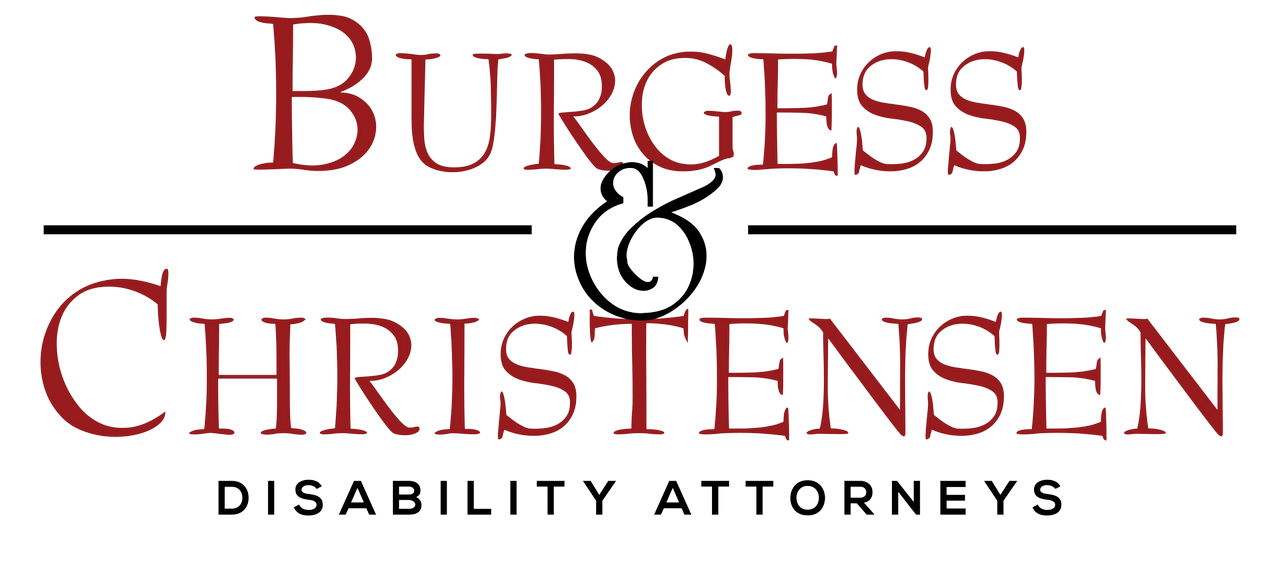Before you can receive disability benefits through the Social Security Disability Insurance (SSDI) or Supplemental Security Income (SSI) programs, you need to prove that you meet eligibility requirements.This is a challenging task, requiring significant amounts of persuasive evidence.
The Social Security Administration, working with state agencies, will assess your disability and your ability to support yourself through employment. The eligibility assessment is critical to the process of obtaining benefits to help make up for wages you are not able to earn because of your disability.
An experienced attorney can help you ensure that you present information on your application and supporting documentation in a way that helps demonstrate that you met the eligibility requirements for disability. At Burgess & Christensen, we focus our practice on helping those with disabilities gain the benefits they need to support themselves and their families. We provide advice throughout the process, we assist with applications and appeals, and we advocate strenuously on your behalf at each step of the process. We only get paid when we help you get approved for benefits and entitled to past due benefits, so we fight hard to achieve your success.
Five-Step Evaluation of Disabilities
Disability applicants are assessed based on five issues to determine whether they are capable of performing “substantial gainful activity.” If the examiner conducting the assessment determines at any point that the applicant can perform substantial gainful activity and thereby support themselves, then they deny benefits. So to qualify for benefits, you must satisfy them that your disability prevents you from engaging in gainful employment.
1. Are You Currently Working?
If you are working and getting paid, or if you are doing work that could potentially earn money, then you might be disqualified from receiving benefits at the first step in the evaluation process. The Social Security Administration sets a maximum level of monthly earning, and applicants who earn more than that amount are considered to be substantially gainfully employed, and therefore ineligible for disability benefits.
2. Is Your Disability Considered Severe?
To qualify for disability benefits, you must prove that you are impaired in a way that significantly limits your physical and/or mental ability to complete many basic tasks.
It is important to remember that just because you have been diagnosed with a serious condition does not mean that you are severely impaired. It is important to prove not only the disabling condition but also how it disables you. This is a task an experienced Social Security disability attorney can assist with, because we are used to demonstrating why clients’ conditions lead to severe impairments.
3. Does Your Disability Meet the Standards for a “Listing?”
The Social Security Administration keeps categorized lists of conditions and illnesses and how severe they must be in order for a benefit applicant to be considered disabled. If an applicant can prove that they have been diagnosed with one of the listed conditions and that the severity of the condition meets or in some way equals the criteria for that listed condition, then the applicant may be considered to have met the burden for establishing a qualifying disability. They will need to demonstrate that the condition causes significant functional limitations.
Because an applicant can be approved at this stage of the assessment, we work hard to produce medical evidence and proof of functional impairment sufficient to satisfy the examiner of eligibility at this stage. If there is not enough evidence to show that the applicant meets the criteria for the listing, then the applicant is not automatically rejected but the assessment continues to the next step.
4. Can You Do the Work You’ve Done in the Past?
The examiner making the assessment will next consider whether the applicant is able to perform the type of work they have undertaken in the past. They may look back over the past 15 years. For instance, if an applicant painted houses for a living and then suffered a severe back injury in a car accident, the examiner will consider whether the applicant can resume painting houses or perform any other type of work they have done in recent years. If the examiner decides that they can continue to undertake similar tasks, then the application will be denied. If the applicant has succeeded in proving they cannot perform past work, then the process moves to step five.
5. Can You Do Any Other Paying Work?
The final stage of the assessment involves determining whether the applicant can undertake any type of gainful employment that exists in the national economy. This can be a difficult element for an applicant to satisfy, particularly if the applicant has a variety of job experience, skills, or education.
Get Help with the Eligibility Assessment for Disability Benefits
Succeeding at the eligibility assessment is critical to obtain disability benefits through SSDI or SSI, but the process is complex and requires significant amounts of evidence. Working with an experienced attorney who can help you demonstrate your qualifications can make all the difference in the outcome.
At Burgess & Christensen, our practice is devoted to helping applicants receive the disability benefits they are entitled to. We do not charge a fee until you are approved for benefits and entitled to past due benefits—but we can work with you throughout the application process from start to finish.
For a free consultation to learn more about how we can help with the eligibility assessment and other aspects of a claim for benefits, schedule an appointment with us today.

